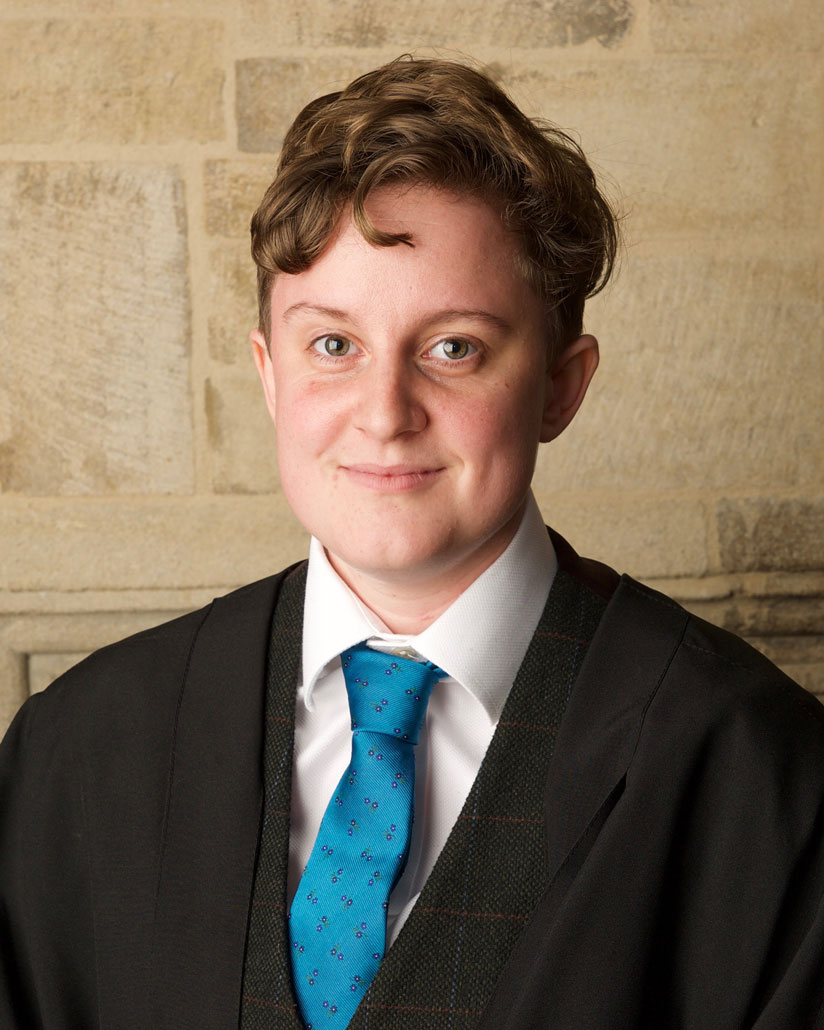Posted:
17 Nov 2021
Law students Dan Se and Miriam Butcher reached the semi-finals of the highly competitive 2021 Herbert Smith Freehills Disability Mooting Championship: Oxford v Cambridge.
The duo missed out on a place in the finals where Downing College lost out to the University of Oxford’s Magdalen College team.
The Grand Finalists had to get through two days of mooting to reach the final stage of the competition. Twelve teams of two students, six teams from Oxford and six from Cambridge, took part, including the Trinity Hall pair.
Cambridge Vice-Chair of the Organising Committee, Dr Rachel Clement Tolley, who is a Fellow at Trinity Hall, said: “The Herbert Smith Freehills Disability Mooting Championship was founded to promote the intellectual study of disability law and to bring the legal, political and social issues facing disabled people to the attention of the next generation of legal practitioners.
“Over many years, students at Oxford have found the experience of participating in this unique event enriching and informative and I’m very grateful to the team in Oxford and to Herbert Smith Freehills for extending that same opportunity to our students at Cambridge.”

Dr Rachel Clement Tolley
The John Collier Fellow and College Lecturer in Law added: “It was particularly pleasing to see Trinity Hall students taking part and reaching the semi-finals.”
Dan said: “It was incredibly valuable to experience a different kind of moot – one in an unfamiliar realm of law, judged by partners with impressive litigation experience, run by a law firm invested in accessibility. It seems invaluable that future generations of lawyers continue to consider the impact law has on disabled claimants.”
Miriam said: “Taking part in the moot was a fulfilling opportunity, allowing us to take a step back from our usual studies and think about how the law applies in real-life scenarios. Approaching it from the perspective of disabled clients was something we had not had the opportunity to do before, and we were able to think about the law from a more critical perspective as to how it might potentially help or hinder vulnerable individuals. I would love to learn about disability law more going forward and carry the important lessons into professional practice. ”
Preliminary rounds also took place remotely, due to the ongoing COVID-19 pandemic. The moot problem focussed on equality law, housing law and nuisance, centring on a disagreement between a disabled tenant and her landlord.
This exciting mock court case competition aimed to showcase the intellectually demanding study of disability and the law.
Grand Final judges included Professor Susan Bright, Professor of Land Law, McGregor Fellow, Oxford Faculty of Law, Nicholas McBride, Director of Studies in Law, University of Cambridge and Dan Hudson corporate crime and investigations partner at Herbert Smith Freehills.
The event is supported by the law firm Herbert Smith Freehills. Tim Leaver, Partner at Herbert Smith Freehills one of the founders of the event and semi-final judge early rounds. Tim said: “The standard of mooting, and indeed the problem setting, in this year’s annual HSF Disability Mooting Championship blew us all away.
“We were, once again, delighted to partner with the Oxford Law Faculty and the Disability Law and Policy Project for the seventh consecutive year. The issues discussed are not just hypothetical; they are real. They touch on genuine challenges that are faced by people with disabilities on a daily basis.
“The fundamental importance of speaking openly about these matters, and highlighting them to the next generation of lawyers and policy makers should not be underestimated. This year’s panel discussion was exceptional – the clarity of thought and argument expressed gave us all a master class in advocacy, and many lessons should be learned.”
Following a week which saw Israeli Minister, Karine Elharrar, excluded from COP26 because of the lack of wheelchair accessibility, the panel discussion, which followed the Grand Final, was particularly relevant. It asked: Does the National Disability Strategy do enough to address the twin crises of Climate Change and life post-COVID-19 Pandemic?
The session’s keynote chair was Kamran Mallick, CEO of Disability Rights UK. Kamran is listed in the Shaw Trusts 2018 Power 100 list of Britain’s most influential disabled people and made it to the top 10 in their 2020 list. Speakers included: Professor Peter Beresford OBE, Visiting Professor at the University of East; Dr Sasha Kosanic, Lecturer at Liverpool John Moores University; Jumoke Abdullahi, Communications & Media Officer at Inclusion London; Jane Hatton, Founder of Evenbreak; Dr Kay Inkle, Campaigns and Policy Manager at Wheels for Wellbeing. Panellists discussed what tensions exist between disability rights and evolving environmental legislation and policy.
They also explored how we can use the twin challenges of Climate Change and the COVID-19 pandemic to design more inclusive employment, including transport and active accessible travel.
